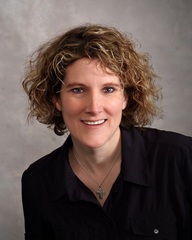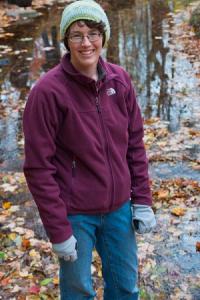Meet our 2018 UMSRS Invited Speakers and Panelists!

Joe Berg, Senior Restoration Ecologist, Biohabitats, Inc.
Local, regional, state, and federal organizations are looking to stream restoration as a cost-effective means to meet sediment and nutrient reduction goals associated with MS4 permits and regional TMDL goals. Concerns with this approach include the potential for conflicting resource management values, uncertainty with how to credit sediment and nutrient reduction, and the nature of regulatory oversight. Recently, an Environmental Protection Administration sponsored white paper (Schueler and Stack, 2013) addressed these issues and has received final approval by the Chesapeake Bay Program’s water quality goal implementation team. This clears the way for regulated entities to use stream restoration to receive a range of water quality credits. At the same time, another study of various means to improve water quality (Center for Watershed Protection, 2013) has documented the relative cost and benefits of many water quality practices, and stream restoration is often an order of magnitude less costly per unit of nutrient removed. Together, these results are stimulating an increased interest in, and reliance on, stream restoration as a preferred approach for permit and water quality goal compliance. As presented in the EPA Bay Program white paper (Schueler and Stack, 2013), not all types of stream restoration are created equal, and as a result the greatest water quality benefits are associated with stream restoration projects that incorporate floodplain reconnection. This presentation will summarize the EPA study and describe the range of opportunities for stream restoration and some of their challenges and opportunities.
About the Speaker
Joe is an ecosystems ecologist with more than 30 years experience in the assessment and analysis of natural resources; development, preparation, and implementation of restoration plans; and the range of studies, documentation and permitting experience required. The focus of his efforts have been the restoration of integrated stream, wetland and floodplain functions as a means to deliver ecosystem services to society, increase natural capital, and integrate local community needs with an appreciation of natural resource values. He is the Practice Leader for Ecological Restoration for Biohabitats, Inc.. Joe is on the Board of the Society for Ecological Restoration, and is a member of several other professional associations, including the Society of Wetland Scientists, Ecological Society of America, American Ecological Engineering Society, American Water Resources Association, Coastal and Estuarine Research Federation, and the Association of State Wetland Managers. Joe graduated with an M.S. in Marine, Estuarine, and Environmental Science from the University of Maryland in 1984 after three years working on Chesapeake Bay issues as a research fellow.
2018 UMSRS Panel Discussion: Certification and Stream Restoration

Dr. Niezgoda is an Associate Professor of Civil Engineering at Gonzaga University and a registered licensed engineer. She has an emphasis in water resources engineering and teaches and conducts research in the areas of hydraulic engineering, stream restoration, soil erosion and sediment transport, and uncertainty and risk assessment. Dr. Niezgoda is currently working on monitoring the effectiveness of beaver dam analogs to reduce downstream sediment loading. She has also published a body of knowledge for the practice of stream restoration that can be used as a foundation for a national certification. Dr. Niezgoda is on the Board of Directors for RRNW and instrumental in planning the annual Northwest Steam Restoration Symposium.

Dr. Gran has been a PRRSUM member since it was initiated almost 10 years ago. She is an Associate Professor in Geological Sciences at the University of Minnesota Duluth; her research interests include fluvial processes and sediment transport, disturbed systems, stream restoration, interactions between physical landscape and ecological systems, landscape evolution, watershed history, sediment source delineation, and lidar analyses. She is one of the faculty involved in the University of Minnesota's Stream Restoration Certificate program.